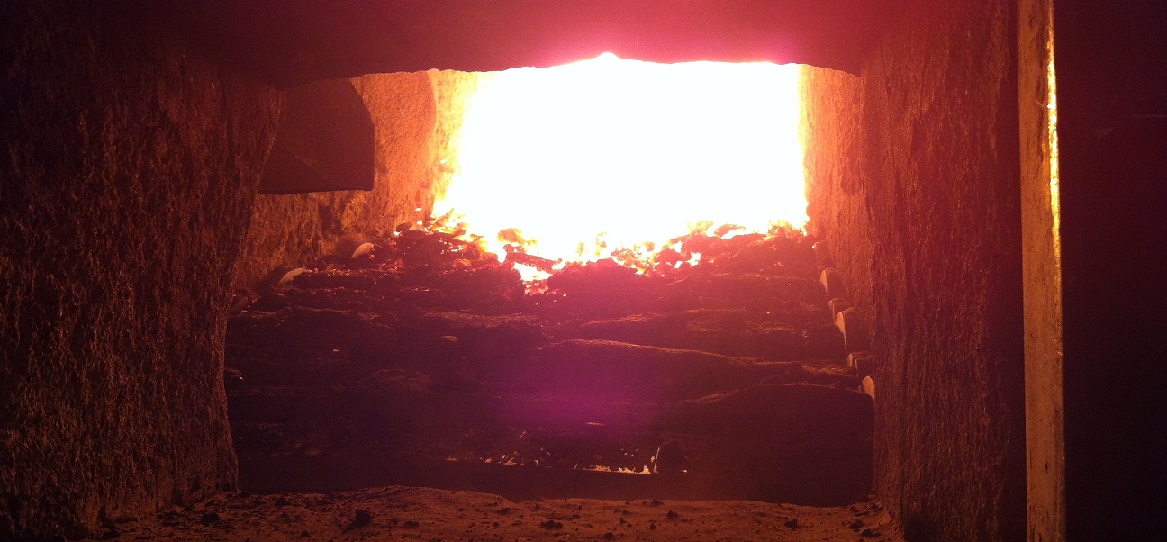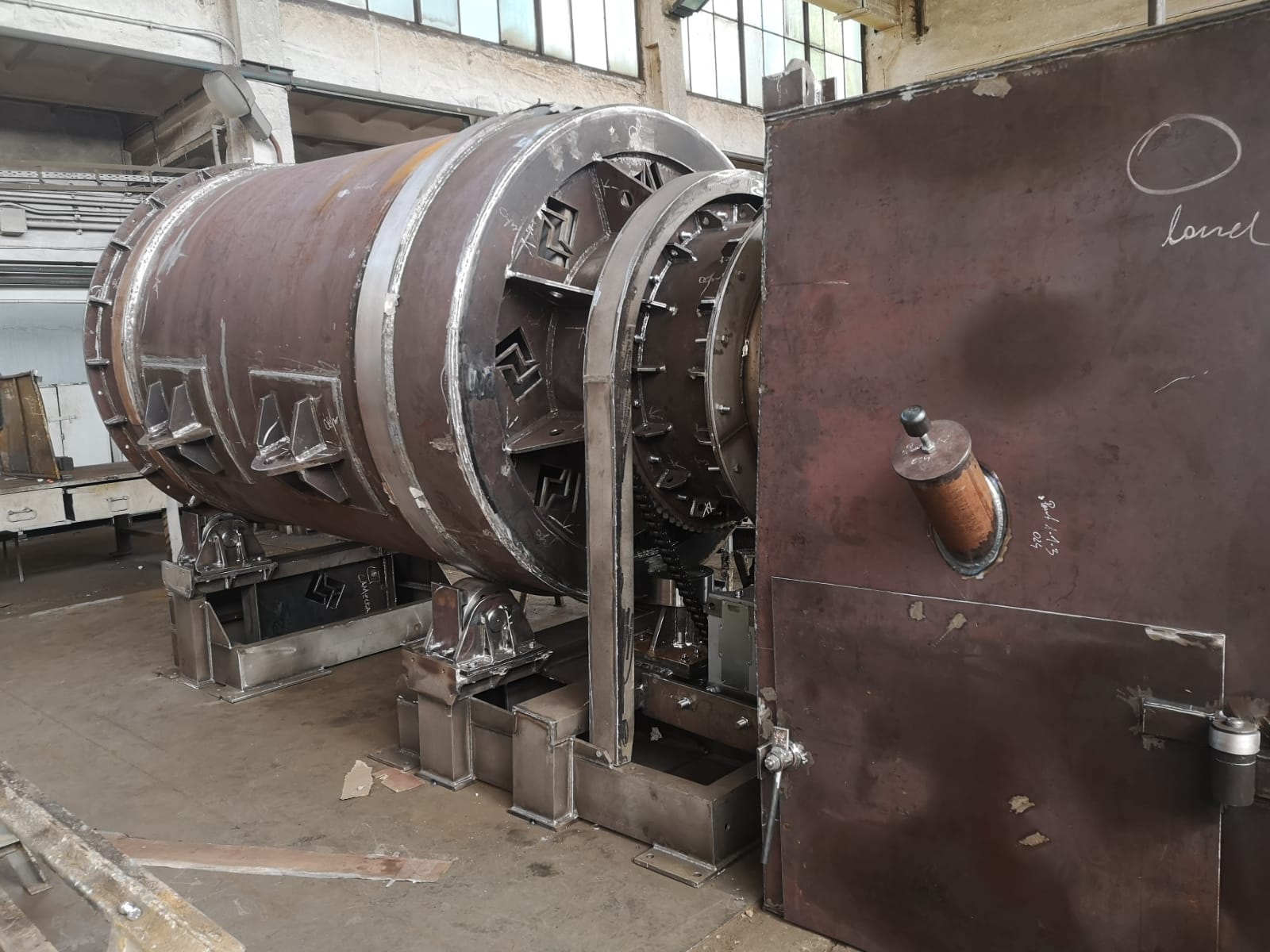Incinerators
- Photo 1: Rotary kiln incinerator plant
- Photo 2: Liquid and gas incinerator plant
Waste to energy incinerator plant
Depending on the capacity and type of waste there are different types of incinerators:
- Rotary kiln incinerators
- Grate incinerators (also called grill or four incinerator)
- Liquids, gases and fumes incinerators
Waste to energy plant, biomass, domestic or household waste incinerator
The waste is arriving in approximate 9-12 ton/hour. Afther that the waste is mixed and cutted into small pieces the waste is transported to the incinerator. The temperature is app. 1000 degr. C. This type of incinerator is used for communal, domestic or household waste.
Read more...

Photo: example of a moving grate incinerator
Rotary kiln - Medical and hazardous waste incinerator
The waste is arriving in approximately 0,3 -5 ton/hour. The waste goes into the rotating drum where it is +/-1200 degree Celcius. This type of incinerator is used for hazardous, medical and chemical waste. It is also possible to burn domestic waste, but the installation must be economical profitable.
Read more...

Photo: example of a rotary kiln incinerator in the workshop before painting procedure
Gases, fumes and liquid waste incinerator
These are single-chamber stationary hearth plant for thermal destruction of hazardous fumes or gases and hazardous liquids. This systems are not suitable for the incineration of solid wastes. In this stationary hearth only liquid and gas waste streams are allowed.
Read more...
Energy recovery systems
Photo: example of a boiler bundle to recover energy of flue gasses
The energy recovery system is always a special system which is adapted to the type of waste and the needs of the investor. Being creative to recovery energy in the right way because electricity is not always the most efficient solution for energy recovery.
Read more...
Business plan of a waste incinerator
The energy recovery system, the waste tipping fee, the necessary chemicals, all the costs and income in 1 table and processing to a business plan or a financial feasibility study needs some assumptions. Read here how to make the business plan of a waste incinerator.
Read more...


